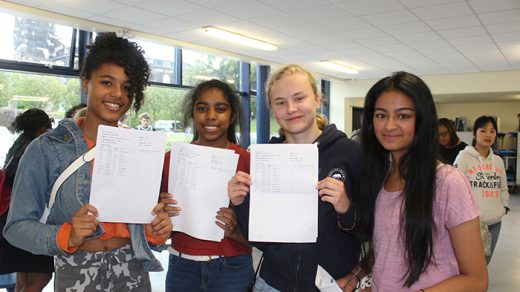Only 40% of young people say relationships and sex education in schools is good

New research has shown only 40% of young people aged 16 and 17 rate their relationships and sex education (RSE) received at school as good or very good. This is three years on from the government’s promise to deliver quality RSE.
The research, from the Sex Education Forum and carried out by Censuswide, showed that nearly one in five students said their in-school RSE is bad or very bad. 1,002 students in England were surveyed.
While 44% of respondents agreed what they learned in RSE had helped them and 42% said the content felt relevant to them, over a quarter still felt lessons were neither relevant (26%) nor helpful (27%).
Topics that more than half of young people felt they had enough information about were bullying and cyberbullying (70%), puberty (65%), how babies are conceived and born (63%), sexual consent (63%), and condoms and contraception (62%).
The Sex Education Forum said that while these results are promising, students have reported since 2021 that some of today’s most pressing issues, which are mandatory in government guidance, have been missed from the curriculum.
In the latest poll, the topics that had not been covered enough or at all included:
– Power imbalances in relationships (58%)
– Pornography (58%)
– Culture and faith-based perspectives (57%)
– LGBTQ+-relevant information (54%)
– The attitudes and behaviour of men and boys towards women and girls (55%)
– What a healthy relationship looks like, including online relationships (54%)
The company said students are clear on the issues they feel they need to know more about and that it is long overdue that these gaps in the curriculum be addressed.
Officially asking for and listening to the feedback of young people in the 2023 RSE review can ensure students receive the information that will make the largest positive impact on their health and relationships.
The Sex Education Forum said it calls for young people to be listened to and engaged in RSE curriculum development, and that there should be increased government investment in teacher training, to ensure every young person can access quality, meaningful RSE.
This year, the government will review its mandatory guidance on Relationships, Sex and Health Education (RSHE), which the Sex Education Forum said makes 2023 the most significant year for RSE since the 2019 government guidance was published with strong cross-party support.
The company urges the government to place the experiences of young people at the core of its evaluation and development of the next iteration of curricula. Policymakers need to actively solicit and listen to the opinions of students and what information they feel they need.
The Sex Education Forum said that the government must also make good on its pledge for substantial and sustained investment in RSE training – on par with other curriculum subjects – to build teacher confidence and skill. While teachers are doing their best to deliver quality RSE, the government needs to empower teachers in tackling today’s big issues like misogyny and pornography.
Lucy Emmerson, chief executive of the Sex Education Forum, said: “Young people are honest about the shortcomings they perceive in school RSE – and the government needs to listen to them in order to deliver more meaningful RSE.
“Students reported that even basic topics like healthy relationships and online content are often lacking. Young people demand – and deserve – better: they want more time dedicated to RSE, LGBTQ+ inclusion and specialised, skilled teachers who can discuss contemporary issues.
“Policymakers risk letting down a whole generation if they pass up this year’s opportunity to engage young people on curricula development and deliver on the teacher training investment.”
Reported quality of RSE improved since last year, up five percentage points in 2022 from just over a third of students saying RSE was ‘good’ or ‘very good’ in 2021.
However, this number remains level with 2019 poll data collected before RSE became statutory – showing how much work is yet to be done in ensuring all students have access to quality curricula.
35% of young people ranked open discussion as the style of RSE they most wanted more of, a quarter would have liked additional opportunities to ask questions, and one in five called for students to have increased input into curriculum improvements.
Respondents were split about whether enough time was dedicated to RSE, with 37% agreeing schools offered enough hours of RSE and 38% disagreeing.
Including young people in the development of RSE will ensure that students are accessing timely information to suit their learning needs, safeguard them from harm and protect their health and wellbeing.






